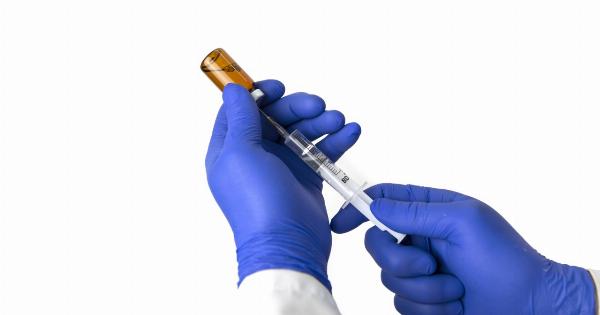Cholesterol medication, commonly known as statins, is prescribed to millions of people worldwide to lower their cholesterol levels and reduce the risk of heart disease.
However, despite its proven effectiveness, many individuals decide to halt their cholesterol medication without consulting their healthcare provider. This article aims to shed light on the risks associated with stopping cholesterol medication abruptly, especially during critical periods when the medication is needed the most.
Understanding Cholesterol and Its Impact on Health
Cholesterol is a waxy substance produced by the liver and also obtained from certain foods. It is essential for the production of hormones, vitamin D, and bile acids, which aid in digestion.
However, when cholesterol levels in the blood exceed healthy limits, it can accumulate in the arteries, leading to the formation of plaques that restrict blood flow and increase the risk of heart disease and stroke.
The Role of Cholesterol Medication
Cholesterol medication, such as statins, works by reducing the production of cholesterol in the liver and helping the body eliminate excess cholesterol from the bloodstream.
Statins have been extensively studied and shown to effectively lower LDL cholesterol, also known as “bad” cholesterol, which is primarily responsible for the formation of plaques in the arteries.
The Importance of Consistent Medication Use
When prescribed cholesterol medication, it is crucial to take it consistently as directed by a healthcare provider.
Halting medication without medical guidance can be risky and may inadvertently increase the risk of cardiovascular events, particularly during critical periods when cholesterol management is crucial.
Risk Factors for Halting Cholesterol Medication
Several factors may contribute to individuals deciding to stop taking their cholesterol medication. It is important to be aware of these risk factors and the potential consequences they carry:.
1. Lack of Symptom Awareness
High cholesterol does not typically cause noticeable symptoms.
As a result, some individuals may mistakenly believe that they no longer need medication, unaware that without treatment, cholesterol levels may rise to dangerous levels and increase the risk of cardiovascular events.
2. Side Effects
Like any medication, statins can have side effects, although they are generally well-tolerated. Muscle pain, weakness, and liver abnormalities are the most commonly reported side effects.
In some cases, individuals may discontinue medication due to these side effects without exploring alternative options or discussing their concerns with their healthcare provider.
3. Complacency and Feeling “Cured”
Patients who have experienced significant cholesterol reduction while taking medication may develop a false sense of security and believe they are “cured” of their condition.
This may lead them to halt medication without realizing that cholesterol management is an ongoing process, requiring consistent treatment to maintain healthy levels.
4. Financial Constraints
Affordability can be a significant barrier to consistent medication use. Some individuals may halt their cholesterol medication due to financial constraints, especially if they do not have access to affordable healthcare or prescription plans.
This decision can have serious consequences on their long-term health.
The Dangers of Stopping Cholesterol Medication Abruptly
Stopping cholesterol medication abruptly can have various negative effects on an individual’s health, including:.
1. Rebound Effect
When cholesterol medication is halted suddenly, the body may react by producing more cholesterol. This rebound effect can result in a sudden increase in cholesterol levels, undoing the progress made while on medication.
2. Increased Cardiovascular Risk
Individuals who abruptly stop cholesterol medication increase their risk of cardiovascular events, such as heart attacks and strokes.
High cholesterol levels contribute to the development of plaque in the arteries, making it essential to maintain optimal levels to reduce the risk of these life-threatening events.
3. Accumulation of Plaques
Without effective cholesterol management, plaque accumulation within the arteries can accelerate.
This can lead to atherosclerosis, a condition characterized by the hardening and narrowing of the arteries, further increasing the risk of heart disease and stroke.
4. Missed Opportunities for Early Intervention
Regularly taking cholesterol medication allows healthcare providers to monitor an individual’s cholesterol levels and make necessary adjustments to the treatment plan.
Stopping medication can prevent healthcare professionals from detecting potential issues early on and implementing appropriate interventions.
The Importance of Medical Guidance
If individuals have concerns about their cholesterol medication or wish to discontinue it for any reason, it is essential to seek medical guidance.
Healthcare providers can assess the individual’s overall cardiovascular risk, evaluate the necessity of continued medication use, and explore alternative treatment options when appropriate.
Conclusion
Halting cholesterol medication without consulting a healthcare provider can have serious consequences, including an increased risk of cardiovascular events.
It is important to recognize the risk factors that may lead individuals to stop their medication and to understand the potential dangers and negative health impacts associated with abrupt discontinuation. Ongoing communication with healthcare providers is crucial for ensuring optimal cholesterol management, reducing cardiovascular risk, and maintaining long-term health.





























